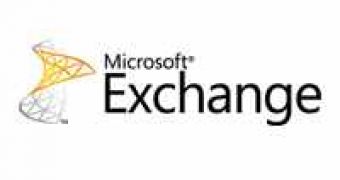Data protection is an important aspect of today’s IT industry, and Microsoft is one of the companies continuously trying to find new ways in which to offer increased protection to its customers.
This week, at the Microsoft Exchange Conference (MEC), the company will offer some info on the features and capabilities of its product, while also highlighting some of the security capabilities that Exchange can provide companies with.
Organizations are increasingly concerned about losing sensitive data, and challenges in making sure that this does not happen are great, Harv Bhela, general manager for Exchange Program Management, states in a blog post.
He also notes that Exchange comes with data protection and archiving features that are meant to help IT professionals to better control the safely of their company’s data.
Some of these features include: - Cloud-based email hygiene with Exchange Online Protection - Data Loss Prevention (DLP) technology to identify, monitor, and protect sensitive information - In-place email archiving, hold, and native data governance to preserve email as long as necessary - Advanced, yet easy-to-use eDiscovery tools to locate information in the organization - Integration with SharePoint supports safe team collaboration with site mailboxes Exchange Online Protection has been designed to work both with the cloud and on premises and to offer 24/7 email availability (99.999 percent network uptime). It also allows for specific filters to be set to deal with emails, thus eliminating costly, repetitive, and unproductive actions.
Through Data Loss Prevention Technology, deep content analysis is used to identify, monitor, and protect sensitive information, Harv Bhela explains, adding that specific policies can be easily set via the Exchange Administration Console, including rules, actions, and exceptions.
Other benefits of Exchange include the possibility to easily manage large mailboxes, or the option to hold a group, a user, a mailbox, or even individual items, or to easily search for content, event through archived items.
Additionally, Exchange works with SharePoint, which means that collaboration tools are available for users, while also coming with technologies that can reduce costs, improve security, and keep workers productive.

 14 DAY TRIAL //
14 DAY TRIAL //